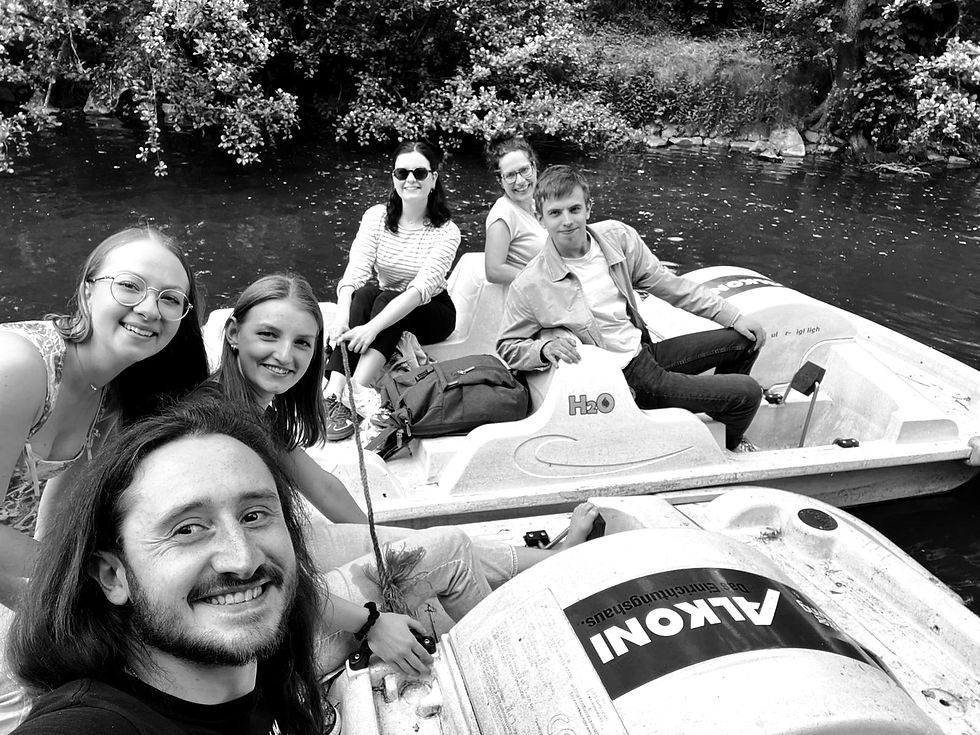Podcast on Retina Research and the Complement System
- dianapauly
- 1. Okt. 2024
- 2 Min. Lesezeit
I recently had the privilege of speaking with Thomas Duda on the Retina View Podcast by the Pro Retina Foundation. One of the foundation's missions is to prevent blindness through its work focused on retinal degeneration research. Their podcast, Retina View, provides a platform for scientists to discuss breakthroughs and ongoing work in this field, aiming to raise awareness about retinal diseases and potential treatments.
In this episode, we explored the research of our lab, with a particular focus on the complement system and its critical role in the pathogenesis of age-related macular degeneration (AMD). My main goal was to break down these diverse topics so that listeners unfamiliar with the field could follow along and understand the science behind our work.
During the podcast, I covered several areas:
I began with an introduction of myself and my research background. Later, I shared how my journey started in my Bachelor’s in Regensburg, where I first got to know the research field of the retinal pigment epithelium and AMD, before joining Diana Pauly’s group during my Master’s and continuing this work through my PhD project in Marburg.
I explained the complement system from its basics, first introducing the two main branches of the immune system: the adaptive and the innate immune system. I focused specifically on the innate immune system, where the complement system plays an essential role.
A key part of the discussion involved answering Thomas’s question about how the complement system contributes to AMD's pathogenesis and the specific role played by the form of retinal pigment epithelium cells. Although this is a complex topic, involving many interconnected aspects, I aimed to break it down clearly and comprehensively.
We also touched on the main research findings of my project, as well as some exciting new projects planned by Diana Pauly for the coming years.
Lastly, I discussed the challenges and fascinations of retina research. With its many layers of cells, the retina is an exceptionally complex structure to study, and understanding it fully is a significant challenge.
Retina research is a field full of complexity and potential, and I hope this podcast offers insight into both the scientific process and the impact our research could have in the future on preventing vision loss. If you’re curious to learn more, I encourage you to give the episode a listen.
Juliane




Kommentare